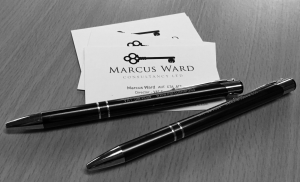I have made a lot of references to penalties in my other articles. So what are they, and how much could they cost if a business gets it wrong?
HMRC detail three categories of inaccuracy. These are significant, as each has its own range of penalty percentages. If an error is found to fall within a lower band, then a lower penalty rate will apply. Where the taxpayer has taken ‘reasonable care,’ even though an error has been made, then usually HMRC will not apply a penalty.
Penalty Categories
– An error, when reasonable care not taken: 30%;
– An error which is deliberate, but not concealed: 70%;
– An error, which is deliberate and concealed: 100%.
Unhelpfully, there is no definition of ‘reasonable care’. However, HMRC have said that they would not expect the same level of knowledge or expertise from a self-employed person, as from a large multi-national. HMRC expect that, where an issue is unclear, advice is sought, and a record maintained of that advice. They also expect that, where an error is made, it is adjusted, and HMRC notified promptly. They have specifically stated that merely to adjust a return will not constitute a full disclosure of an error. Therefore a penalty may still be applicable.
The amount of the penalty is calculated by applying the appropriate penalty rate (above) to the ‘Potential Lost Revenue’ or PLR. This is essentially the additional amount of VAT due or payable, as a result of the inaccuracy, or the failure to notify an under-assessment. Special rules apply where there are a number of errors, and they fall into different penalty bands.
Defending a penalty
The percentage penalty may be reduced by a range of ‘defences:’
– Telling; this includes admitting the document was inaccurate, or that there was an under-assessment, disclosing the inaccuracy in full, and explaining how and why the inaccuracies arose;
– Helping; this includes giving reasonable help in quantifying the inaccuracy, giving positive assistance rather than passive acceptance, actively engaging in work required to quantify the inaccuracy, and volunteering any relevant information;
– Giving Access; this includes providing documents, granting requests for information, allowing access to records and other documents.
Further, where there is an ‘unprompted disclosure’ of the error, HMRC have power to reduce the penalty further. This measure is designed to encourage businesses to have their VAT returns reviewed.
A disclosure is unprompted if it is made at a time when a person had no reason to believe that HMRC have discovered or are about to discover the inaccuracy. The disclosure will be treated as unprompted even if at the time it is made, the full extent of the error is not known, as long as fuller details are provided within a reasonable time.
HMRC have included a provision whereby a penalty can be suspended for up to two years. This will occur for a careless inaccuracy, not a deliberate inaccuracy. HMRC will consider suspension of a penalty where, given the imposition of certain conditions, the business will improve its accuracy. The aim is to improve future compliance, and encourage businesses which genuinely seek to fulfil their obligations.
Appealing a penalty
HMRC have an internal reconsideration procedure. A business should apply to this in the first instance. If the outcome is not satisfactory, the business can pursue an appeal to the Tribunal. A business can appeal whether a penalty is applicable, the amount of the penalty, a decision not to suspend a penalty, and the conditions for suspension.
The normal time limit for penalties to four years. Additionally, where there is deliberate action to evade VAT, a 20 year limit applies. In particular, this applies to a loss of VAT which arises as a result of a deliberate inaccuracy in a document submitted by that person. These are just the penalties for making errors on VAT returns. HMRC have plenty more for anything from late registration to issuing the wrong paperwork.
Help
In my view there is generally a very good chance of success in a business challenging a penalty. Each case should at least be reviewed by an adviser, and experience insists that a robust defence often results in full or part mitigation. We have a very good track record in appealing HMRC decisions and have taken cases right up to High Court. However, most cases can be settled before they get to Tribunal, and indeed, the greatest chance of success is usually at the beginning of the process before HMRC become entrenched.

